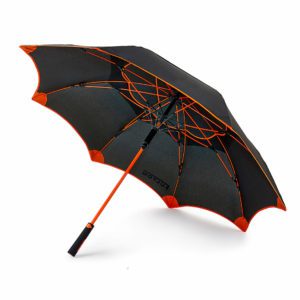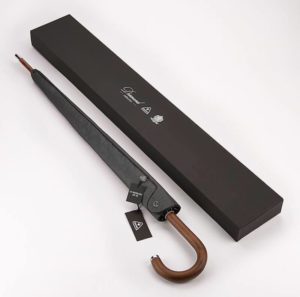
Who Invented Umbrellas?
Who invented the umbrella? The answer may surprise you – it’s not as straightforward as you think. There are a few contenders for the title, and the history of the umbrella is long and fascinating.
When Was the First Umbrella Invented?
The first recorded use of an umbrella-like device was in ancient civilizations, including Assyria, China, Egypt, and Greece, over 4,000 years ago. These early umbrellas were large and cumbersome, made from wood or bamboo, and covered with animal skins. Their primary use was for protection from the sun, not the rain. These ancient umbrellas weren’t a feminine accessory yet—despite what some images from ancient Egypt depict.
Umbrella History: From Royalty to Common Citizens
The first umbrellas were reserved for the wealthy and symbolized status. In 17th-century London, only royals and nobles would carry umbrellas. Commoners had to make do with taking a walking stick or using their coats as protection from the elements.
It wasn’t until the early 19th century that early European umbrellas became more accessible to the masses. In the early 1850s, Samuel Fox developed the steel-ribbed umbrella, which was lighter and more robust than previous umbrellas. This made a basic umbrella more practical and affordable for everyday people.
How Has the Umbrella Changed Over Time?
In the 1960s, Arnold Fulton, the Polish-born inventor, mechanical engineer and Fulton Umbrellas founder, ushered in the modern era of umbrellas with the invention of the clear-domed birdcage umbrella. Quickly adopted by HM The Queen, the birdcage umbrella represented a major evolution in umbrella design and materials. Once Fulton perfected his specialist machinery and manufacturing processes, umbrella production and quality rose to new heights.
Umbrellas have come a long way since their early beginnings. Thanks to advances in technology and materials, umbrellas are now lighter, stronger, and more stylish than ever before. Metals, plastics, and synthetic fabrics have replaced early materials like wood and animal skin.
While the early umbrellas were large and unwieldy, today’s umbrellas are sleek and easy to carry. The new and improved compact foldable umbrella is one of the most popular umbrellas worldwide for its convenience and sleek appearance.

The Umbrella in the Modern World
Many umbrellas are available today, from the traditional manual umbrella to the modern automatic umbrella. Here are just a few of the different umbrellas you can find:
Collapsible Umbrellas
The collapsible umbrella is a “folding” or “parasol” umbrella. Foldable umbrellas have fabric attached to ribs that fold in on themselves. Sometimes called “pocket umbrellas”, small foldable umbrellas are convenient because you can easily store them when not in use. The working folding umbrella is ideal for travel.
Golf Umbrellas
These large umbrellas provide maximum coverage from the sun and rain. A golf umbrella has a large diameter, an extra sturdy frame and strong fabric canopy. These umbrellas withstand high winds and are perfect for golfers, gardeners, or anyone who spends a lot of time outside and wants maximum protection from the elements.


Classic Umbrellas
Classic umbrellas have a timeless design and are built to last. They feature a solid shaft, metal ribs, and a fabric canopy. They’re as much about style as they are about function. Fulton’s classic umbrellas are hand-finished and built to withstand the rigours of daily use.
Brighten Up Your Day with a Fulton Umbrella
Today, Fulton Umbrellas is at the forefront of umbrella design and innovation. This foldable pocket umbrella, for example, is perfect for those on the go. The fabric canopy is woven for strength and coated for water repellency. A foldable compact umbrella is perfect for keeping in your vehicle for an unexpected rain shower.
You don’t have to be royalty to own a sleek and modern umbrella – Fulton Umbrellas Canada has you covered – our umbrella shop has a style for everyone!

